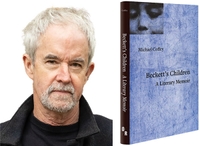More than 150,000 major league games have been played in the modern era, Coffey (The Irish in America
, etc., and PW
's senior managing editor) tells us in this marvelous book, but only 14 have been "perfect games." A game is perfect when "a pitcher pitches at least nine innings of a complete game victory and allows not a single runner to reach first base." The 14 men who have thrown perfect games—from Cy Young in 1904 to David Cone in 1999—provide the focus for Coffey's lively history. But it takes more than a pitcher to create a perfect game: superb fielding plays a part, as necessarily does some winning-team offense, and Coffey elucidates these factors in his colorful game-by-game commentary. More notably, Coffey, like other great baseball writers (Angell, Kahn), realizes that the sport, despite its embrace of eternity (in theory a baseball game can last forever) and inward gaze (all runs are scored at home plate), is played within the larger context of players' lives and the ever-evolving socioeconomic climate. So Coffey frames each pitcher's life and perfect game within the larger picture. Addie Joss's 1908 gem, for instance, occurred inside a sport that, like America, was transforming from rude ruralism to greater urbanity. Sandy Koufax's 1965 feat—perhaps the most perfect of perfect games, as Koufax struck out 14 and triumphed despite his team recording only one hit—is configured against the changing economics of the sport, driven by new media revenues. Throughout the book, baseball holds the center, with each remarkable game springing to roaring life via Coffey's diligent research and vivid prose (Coffey is a poet as well as journalist: 87 North
, etc.). The rarest achievement in baseball has here gained a rare companion: a brilliant book that's about baseball but also about life, one told with such care and passion that it, too, gives a glimpse of perfection. (Apr.)


